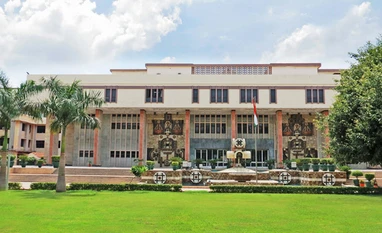The Delhi High Court has held that the tax department was correct in putting the case of a company that applied after a cut-off date for the Sabka Vishwas (Legacy Dispute Resolution) Scheme (SVLDR Scheme) under a category of less rebate.
The scheme was proposed in the Union Budget for 2019-20 to resolve disputes relating to the erstwhile Service Tax and Central Excise Acts, which are now subsumed under GST, as well as 26 other Indirect Tax enactments. The scheme is for taxpayers who wish to close their pending disputes, with substantial relief provided by the government.
A bench of Justice Yashwant Varma and Justice Dharmesh Sharma observed that a unilateral quantification by the petitioner does not render the assessee eligible to avail of the benefit of the scheme since it was the prerogative of the department to quantify the amount.
The petitioner, Ideal Broadcasting India Pvt Ltd, demanded service tax in relation to commission income received from outside the country.
In the meantime, the SVLDR Scheme was announced during Budget of 2019–2020. The scheme was eventually made operational with effect from September 2019.
The petitioner complained that the benefit of the scheme was confined to all such cases where the appeal was pending or had been decided prior to June 30, 2019. It filed an appeal on August 16, 2019, which was beyond the cut-off date for the scheme.
Also Read
An order was passed directing the government to seriously examine the issue of extending the benefit of the scheme to the petitioner.
The tax department allowed the declarant to file a declaration under the scheme, subject to an undertaking by the company that the appeal would be withdrawn. As such, the petitioner company withdrew that appeal.
In the present litigation, the petitioner complained that though the tax department subsequently extended the validity of the scheme, it had claimed a declaration under the "litigation" category, seeking a rebate of up to 50 per cent of the tax dues. The tax dues would come at Rs 17,37,932 in this category, the petitioner claimed.
The petitioner argued that the department has wrongly allowed a lesser rebate by quantifying tax dues at Rs 41,30,697 by putting it under the arrears category.
The court noted that the petitioner chose to exercise the option of availing the benefit under the scheme and, on its own, apparently took a well-informed decision to avail the benefit of the SLVDR scheme by submitting an undertaking to withdraw the appeal.
As such, it dismissed the petition.
Karan Sachdev, partner at Lakshmikumaran & Sridharan Attorneys, said superficially the conclusion by the court may seem unfair.
"However, based on the circular issued by the Central Board of Indirect Taxes and Customs, the judgment strikes a balance to ensure that the assessee is not ousted from the settlement scheme and gets substantial relief and finality to litigation," he said.
)